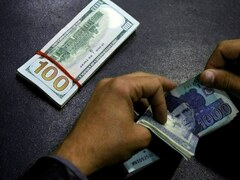EDITORIAL: The World Bank in its recent report titled Business Ready placed Pakistan in the fourth quintile, one up from the bottom quintile, defined as presenting a challenging business environment characterised by relatively weak regulatory frameworks and public services, which constrains the operational efficiency of their businesses; the bottom quintile is defined as economies particularly struggling in the Public Services pillar.
Two observations are in order. First, the focus of the report is clearly on the private sector which, as per the report, generates about 90 percent of jobs, 75 percent of investment, more than 70 percent of output, more than 80 percent of government revenues in developing economies in general.
However in Pakistan’s case, government policy has historically acted as an impediment to private sector activity in the: (i) industrial sector sourced to not only the tendency of administrations, civilian and military, to continue to mollycoddle existing large manufacturing units through extension of fiscal and monetary incentives (including subsidised utility rates) cited as reasons behind lack of a diversified output base with the country still exporting its surplus instead of producing to export like in neighbouring countries India and China; and (ii) elite capture of the farm sector that accounts for the rich landlords succeeding in raising their yield per hectare well above the national average but also managing to get export subsidies for sugar due to pervasive political influence.
Add the massive porous borders and smuggling of essentials as and when the government subsidises items which makes the products cheaper than in neighbouring countries – Afghanistan and India.
The country’s recent engagement with the International Monetary Fund (IMF) comes with the prior condition of withdrawing not only all fiscal incentives but also monetary incentives that is expected to lower growth from the budgeted 3 percent, which, in turn, will have negative implications on jobs, output and government revenue which witnessed a shortfall of 87 billion rupees in the first quarter of the current year.
However, the second impediment to private sector activity in Pakistan is associated with a steady rise in the budgeted allocation on debt servicing costs given the ever-rising reliance on borrowing (domestically and externally) and failure to contain current expenditures that were raised by 21 percent in the current year in spite of the acknowledged fragility of the economy while development expenditure, with a major positive impact on growth and jobs, is mercilessly slashed to reduce the deficit to meet the IMF conditions.
It is important to note that Pakistan ranked in the second quintile in financial services, in the third quintile in business insolvency, third from the bottom on provision of utility services in the fourth quintile and fourth from the bottom in the fourth quintile in business location and in market competition; disturbingly we rankled in the bottom quintile in dispute resolution, international trade and labour.
Pakistan’s placement in the fourth rating in the report compels one to draw one overarching conclusion notably that there is an urgent need for government to begin to reform its tax structure and the power sector, two major lacunae in the capacity of the private sector to compete in the international market, formulate fiscal and monetary policies designed to develop a private sector dedicated to increasing output in an export dedicated sector and, in the meanwhile, slash current expenditure that would reduce the pressure on generating revenue from existing sources, inclusive of high corporate tax, as envisaged in the budget for the current fiscal year.
Copyright Business Recorder, 2024




















Comments
Comments are closed.